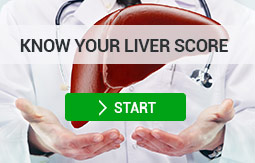What are Omega-3 and Omega-6?
Omega-3 and Omega-6 are essential fatty acids necessary for the healthy functioning of the body. The ideal diet will contain a balance of Omega-3 and Omega-6. Omega-3 rich foods reduce inflammation in the body while Omega-6 foods increase it – the two fatty acids are opposite, yet both are necessary to complete the other. These essential fatty acids are not produced by the body and must come from food sources.
Why you should increase your Omega-3 intake
Research shows that Omega-3 fatty acids are particularly important in cognitive functioning and also reduce the risk of heart disease, cancer, and arthritis. While Omega-6 is important, research conducted by University of Maryland Medical Center shows that Omega-6 is typically consumed in 14–25 times greater quantity than Omega-3 in North America. This diet imbalance can cause a myriad of health issues including poor memory, unstable moods, low energy and heart problems. The main cause of Omega-6 over-consumption is eating an excess of meats and high-fat dairy products such as cheese.
How to get more Omega-3 in your diet
Omega-3 is high in fish such as salmon, halibut and tuna, as well as nuts and seeds, particularly flax seeds, walnuts, and chia seeds. Since fish comes with the added risk of high mercury levels, however, try to limit its consumption to once a week. An easy way to ensure the recommended level of Omega-3 is present in one’s diet is to consume 1-2 tablespoons of ground flax seed a day.
Flax seed for Omega-3
Ground flax seed is generally viewed as more beneficial than whole seeds as its nutrients are better retained and it’s more easily digestible. It does not have a distinctive taste and can easily be added to salads, soups and smoothies. Flax seed can also be incorporated into baking recipes in addition to flour or when mixed with water it can act as a substitute for eggs. Adding just a small amount of flax seed into one’s diet every day can have potentially huge benefits for one’s heart, brain and overall health.
Find out about the nutrition bar that 98% of liver health experts would recommend!
References:
umm.edu
webmd.com
ncbi.nlm.nih.gov
webmd.com
mayoclinic.org

 (442) 244-5115
(442) 244-5115















